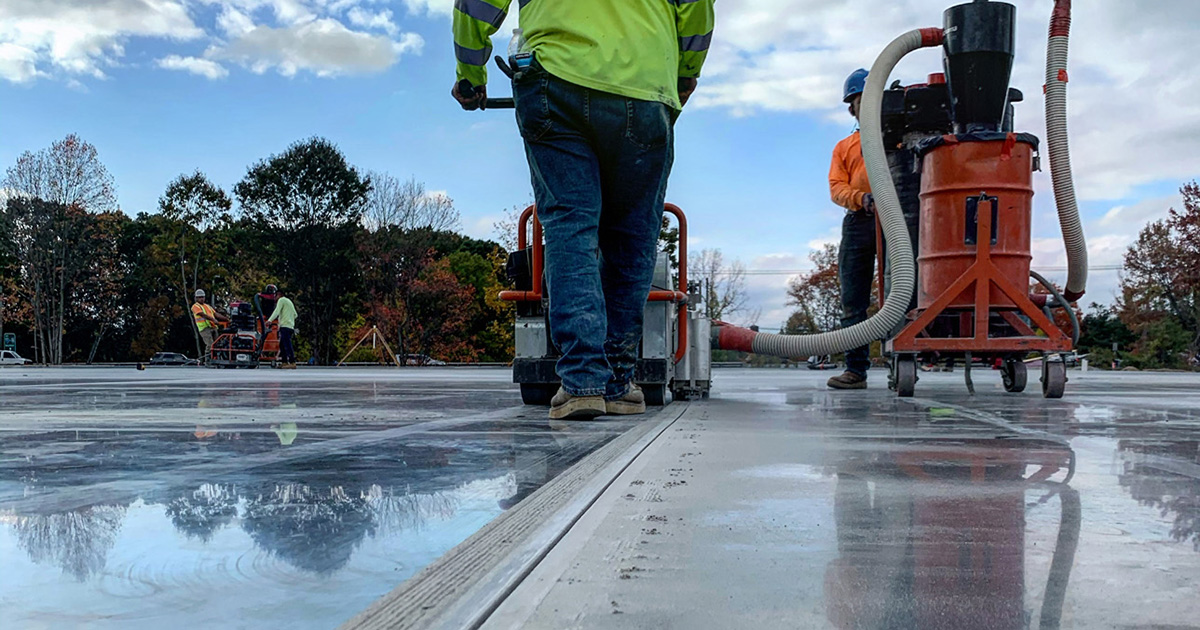
Contractor Website Services That Drive Business
For contractors, a strong online presence can mean the difference between landing high-value projects and being overlooked by potential clients. A professional website serves as your digital storefront, showcasing your skills, services, and experience. Contractor website services are designed to help you create and maintain a high-impact website that not only attracts traffic but converts visitors into paying clients.
In this post, we’ll cover the key elements of effective contractor website services, from web design and SEO to content creation and lead generation tools. With the right approach, you can build a website that sets you apart from competitors and drives consistent growth for your business.
1. The Importance of a Professional Website for Contractors
A well-designed website is critical for building credibility and attracting clients in the construction and contracting industry. Your website serves as the first point of contact for many clients, and it should reflect your professionalism, expertise, and commitment to quality.
Benefits of a Professional Contractor Website:
- Establishes Credibility: A polished website signals professionalism and reliability, encouraging visitors to trust your services.
- Showcases Your Work: Use your website to highlight past projects, client testimonials, and case studies that demonstrate your capabilities.
- Increases Visibility: With the right SEO strategy, your website can appear at the top of search results when potential clients look for contractors in your area.
- Generates Leads: Effective contractor website services include lead capture forms, CTAs (calls-to-action), and other tools designed to turn visitors into leads.
Investing in a professional website helps you reach a broader audience, stand out from competitors, and secure more projects.
2. Essential Contractor Website Services
When building or improving your website, it’s important to focus on services that provide the most impact. Here are the key elements to consider:
2.1. Custom Web Design and Development
A website tailored to your brand and business goals stands out from generic templates. Professional web design ensures your site is user-friendly, mobile-responsive, and aligned with your brand identity.
Key Features of Custom Web Design:
- Responsive Design: Your website should provide an optimal viewing experience across all devices, including smartphones and tablets.
- Clean Navigation: Visitors should be able to easily find what they’re looking for, from service descriptions to contact information.
- High-Quality Visuals: Use professional images and videos of your completed projects to create a strong visual impact.
Custom web design allows your business to make a lasting first impression, setting you apart from competitors.
2.2. Search Engine Optimization (SEO)
SEO is crucial for ensuring that potential clients can find your website when they search for relevant terms online. Contractor website services should include both on-page and off-page SEO strategies to improve your website’s visibility.
SEO Best Practices for Contractor Websites:
- Keyword Research: Identify the keywords potential clients use when searching for contractors, such as “residential remodeling,” “commercial construction,” or “[City] general contractor.”
- On-Page Optimization: Optimize titles, meta descriptions, headings, and content for relevant keywords.
- Local SEO: Focus on location-specific keywords and optimize your Google My Business listing to improve visibility in local searches.
- Content Creation: Regularly publish blog posts, guides, and case studies that showcase your expertise and incorporate target keywords.
A well-executed SEO strategy increases your website’s ranking, driving more traffic and qualified leads to your business.
2.3. Content Creation and Management
High-quality content helps position your company as an industry expert, engaging visitors and encouraging them to learn more about your services.
Types of Content to Include:
- Service Pages: Provide detailed descriptions of each service you offer, including benefits, project timelines, and examples of past work.
- Blog Posts: Share industry news, construction tips, and guides that address common client questions or concerns.
- Case Studies: Highlight completed projects with in-depth case studies that showcase your expertise and problem-solving abilities.
- Client Testimonials: Incorporate client feedback and success stories to build trust and credibility.
Content creation services ensure that your website remains fresh, relevant, and engaging.
2.4. Lead Generation and Conversion Optimization
Your website should be designed to convert visitors into leads. Contractor website services often include features and strategies aimed at maximizing conversions.
Effective Lead Generation Tools:
- Contact Forms: Include easy-to-use forms on key pages, such as the homepage, service pages, and landing pages. Only ask for essential information to encourage more submissions.
- Calls-to-Action (CTAs): Use clear, compelling CTAs like “Request a Free Estimate” or “Schedule a Consultation” to guide visitors toward taking action.
- Live Chat and Chatbots: Provide instant answers to common questions and collect lead information through live chat or automated chatbots.
- Landing Pages: Create dedicated landing pages for specific campaigns or services to increase conversions.
Optimizing your site for lead generation ensures that visitors take meaningful steps toward becoming your clients.
3. Additional Contractor Website Services to Consider
Depending on your business goals, there are additional services that can enhance your website’s performance and your overall digital marketing strategy.
3.1. Social Media Integration
Connecting your website with social media platforms allows you to share updates, engage with clients, and drive traffic back to your site. Social media integration can include sharing buttons, embedded feeds, and links to your profiles.
3.2. Analytics and Performance Tracking
Understanding how visitors interact with your website is key to improving its performance. Contractor website services should include analytics tools that track:
- Website Traffic: Number of visitors, sources of traffic, and time spent on pages.
- Conversion Rates: Percentage of visitors who complete desired actions, such as filling out a form.
- User Behavior: Pages visited, time spent on site, and bounce rates.
Regularly analyzing this data helps you refine your marketing strategies and improve site performance.
3.3. Website Maintenance and Security
A well-maintained website ensures a seamless experience for visitors and protects against security threats. Website maintenance services often include:
- Software Updates: Keeping themes, plugins, and CMS systems up to date.
- Security Monitoring: Protecting your site from hacking attempts, malware, and other threats.
- Regular Backups: Creating backups of your site to safeguard data in case of an issue.
Ongoing maintenance ensures that your website continues to perform optimally and remains secure.
4. Choosing the Right Contractor Website Services Provider
When selecting a provider for your contractor website services, consider their experience, reputation, and range of offerings. Here are a few tips to help you choose the right partner:
Key Considerations:
- Industry Experience: Look for a provider with experience working with contractors and construction companies.
- Portfolio Review: Ask to see examples of websites they’ve built for other contractors.
- Client Testimonials: Check reviews and testimonials from past clients to gauge their satisfaction.
- Customization Capabilities: Ensure they can create a website tailored to your unique business needs, rather than relying solely on templates.
Partnering with the right provider helps you build a website that aligns with your goals, engages clients, and supports long-term growth.
5. Enhancing Your Website with Advanced Features
Once your website is live, you can enhance its functionality with advanced features that improve user experience and client engagement.
Advanced Features to Consider:
- Interactive Project Galleries: Allow visitors to filter and explore projects by type or location.
- Scheduling Tools: Let clients book consultations or appointments directly through your website.
- Client Portals: Provide a secure area where clients can access project updates, documents, and communication.
These features demonstrate your commitment to providing a superior client experience.
6. Prioritizing Mobile Optimization
In today’s mobile-first world, many clients will access your website on their smartphones. Optimizing your site for mobile ensures that users have a seamless experience regardless of their device.
Mobile Optimization Strategies:
- Responsive Design: Your website should automatically adjust to fit any screen size, providing an optimal viewing experience for mobile and desktop users alike.
- Streamlined Navigation: Simplify menus and make sure key information, such as service descriptions and contact forms, is easy to access on a smaller screen.
- Fast Load Times: Compress images, use efficient coding, and minimize redirects to ensure your site loads quickly on mobile devices.
A mobile-friendly website not only improves user experience but also contributes to higher search engine rankings, driving more traffic to your site.
7. Incorporating Visual Storytelling
Visuals are a powerful tool for showcasing your expertise and engaging potential clients. By incorporating strong visuals, you can tell your brand’s story and highlight your capabilities.
Visual Storytelling Ideas:
- Project Videos: Share short videos or time-lapse recordings of completed projects to provide an inside look at your work.
- Before-and-After Comparisons: Display transformation projects to show the impact of your services.
- Infographics: Use infographics to explain complex processes, such as the steps involved in a major renovation.
Visual storytelling adds an emotional connection, helping visitors better understand your value and inspiring confidence in your services.
8. Crafting Engaging, Conversion-Driven Copy
Your website’s content should be clear, concise, and tailored to the needs of potential clients. Professional copywriting services can create compelling content that resonates with your audience and drives conversions.
Content Writing Tips:
- Client-Centered Messaging: Focus on the benefits and value you provide to clients, rather than just listing features.
- Use of Social Proof: Weave in testimonials, awards, or certifications to build credibility.
- Calls-to-Action (CTAs): Use persuasive CTAs that prompt visitors to take the next step, such as scheduling a consultation or downloading a project guide.
High-quality, persuasive content can significantly impact how visitors engage with your site and your overall conversion rate.
9. Integrating Client Communication Tools
Effective communication is key to building strong client relationships. Your website can act as a communication hub, making it easy for clients to reach out, track project updates, and interact with your team.
Communication Tools to Consider:
- Live Chat: Offer real-time communication for quick questions or support.
- Client Portals: Provide a secure area for clients to view project updates, invoices, and important documents.
- Appointment Scheduling: Let clients book appointments or consultations directly through your website.
Seamless communication tools improve client satisfaction and increase the likelihood of repeat business.
10. Leveraging Analytics to Refine Your Website
Your website should be continuously optimized based on real data and user behavior. Analytics tools can help you identify what’s working and where improvements are needed.
Key Metrics to Track:
- Visitor Behavior: Understand how users navigate your site, which pages are most popular, and where drop-offs occur.
- Conversion Tracking: Measure how many visitors complete desired actions, such as submitting a contact form.
- Traffic Sources: Identify which channels drive the most traffic to your site (e.g., organic search, social media, paid ads).
Regularly analyzing website data helps you fine-tune your marketing strategies, optimize user experience, and maximize lead generation.
11. Emphasizing Security and Trustworthiness
Building trust with clients starts with a secure, professional website. Protecting client data and maintaining a secure online environment is essential.
Security Measures:
- HTTPS Encryption: Ensure all data exchanged between your website and users is encrypted.
- Regular Updates: Keep your website’s CMS, plugins, and security software up to date to prevent vulnerabilities.
- SSL Certificates: Use SSL certificates to assure clients that their data is safe.
Highlighting your commitment to security reassures potential clients and demonstrates professionalism.
12. Developing a Long-Term Digital Strategy
Your website should be part of a broader digital marketing strategy that supports long-term growth. This includes integrating online advertising, social media campaigns, and other digital efforts that drive traffic back to your website.
Long-Term Strategy Tips:
- Regular Content Updates: Keep your site fresh with new blog posts, case studies, and project updates.
- Social Media Campaigns: Leverage social media to share content, promote services, and engage with your audience.
- Email Marketing Integration: Use your website to collect leads and nurture them through targeted email campaigns.
A comprehensive digital strategy ensures your website remains a key driver of business growth.
Build a High-Impact Website with Contractor Website Services
Effective contractor website services go beyond simple design—they encompass a full suite of tools and strategies that help you build a powerful online presence. From custom web design and SEO to content creation and lead generation, each element plays a role in attracting clients and growing your business. By investing in these services, you can set your company apart from the competition, showcase your expertise, and achieve long-term success.







